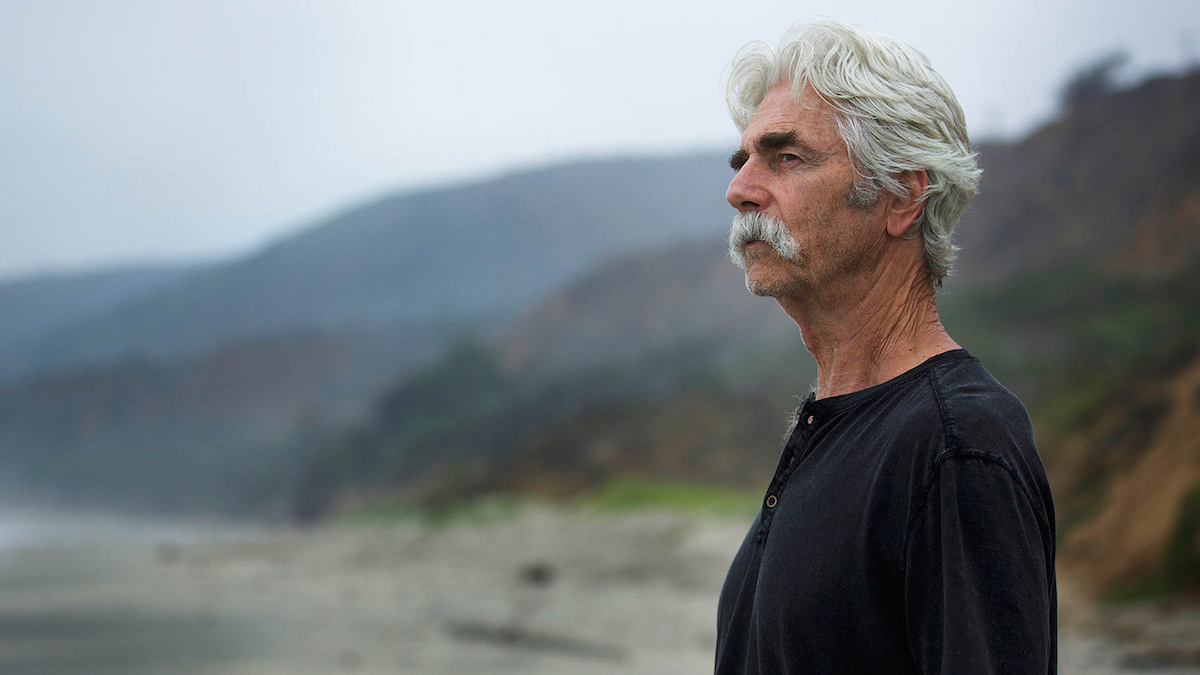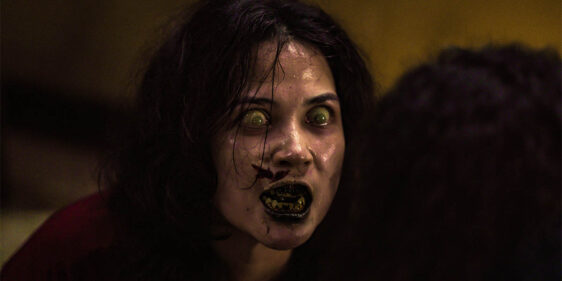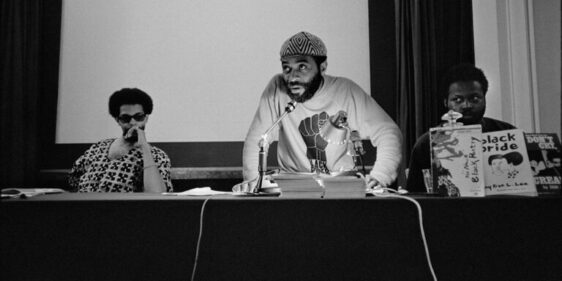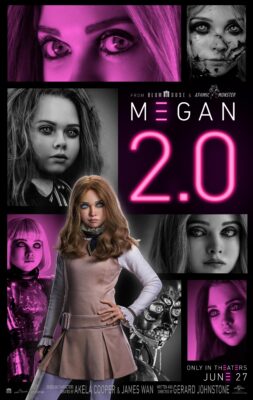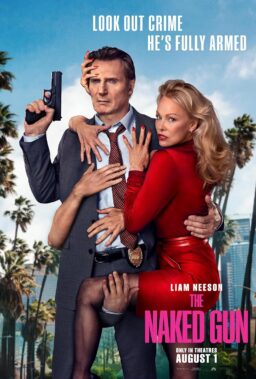The city of Los Angeles was given a special close-up in this year’s Sundance roster, albeit in different shades from writer/directors: Brett Haley’s “The Hero” presented it as a type of “La La Land” with his Sam Elliott tribute vehicle; Michelle Morgan treated it as a city of neuroses in “L.A. Times”; Justin Chon framed it as a place of racial tension, using the L.A. Riots as his backdrop for his indie project “Gook.”
“The Hero” woos in the beginning by getting up-close with an actor who easily fascinates. We watch as he does what we love to see him do, as he provides a voiceover for a commercial with his iconic baritone voice, and is soon after shown smoking weed. There’s a charm in seeing Sam Elliott, not often the leader of films, presented in his own world, of which we are now invited into. It’s a shame that Haley gets in the way of all this, as his reflective take on Elliott’s career doesn’t so much wink at the audience but demand that you cherish him.
In the movie, Elliott plays a former movie star named Lee Hayden, who lives alone with bottles of whiskey and has become estranged from his wife, daughter and the movie business. When he gets diagnosis with cancer, he doesn’t communicate that to his wife or daughter (Krysten Ritter), but instead tells them he’s going to make a movie, after all of these years. He even tells that to his friend, pot dealer and former co-star Jeremy (Nick Offerman, a Sundance staple and thankfully so), who introduces Lee to his friend, Charlotte (Laura Prepon). When Lee’s daughter can’t go with him to get some lifetime achievement award from a western appreciation society, he brings along Charlotte as they start their own romantic relationship.
Haley’s movie is marred by a clear limit to its poetry, and the way it has little tact with references to the title star. Elliott has to give a speech about his lifetime achievement and says earlier that he’s not sure what he’s accomplished; aside from being a lazy meta moment, the script shrugs off this viable question. Prepon’s character, with hair just like Lee’s daughter in a detail never addressed, is designed to talk about him, even when she uses their sex life for an especially cringe-worthy scene with her stand-up career, where she jokes about doing it with an old guy. Even certain moving moments, like an audition that becomes personal for him, is repeated a second time to squeeze out any tears from round one (which is a good scene itself). By the end, the movie lacks so much poetry that it has Charlotte literally read poetry to Lee, as some type of wise grand finale. This project made me miss the likes of Paul Weitz’s “Grandma,” which was a star vehicle of similar intent for Lily Tomlin (featuring an unforgettable Elliott in one scene) but could think beyond creating a mere reflection on top of a pedestal.

As a piece of the NEXT competition, Michelle Morgan’s “L.A. Times” could play like a usual city comedy, but one with some stranger attributes. As it tends to be more recognizable than progressive, it’s probably in this category because it has such a polarizing sense of dry humor, as reflected by the many walk-outs I saw during my screening.
The movie starts off like an unholy mash-up of Woody Allen neuroses and Whit Stillman’s manners, taking place in Los Angeles among a group of friends who all have various relationship problems. The references to those two directors is so pointed it makes the tone hard to settle into—is this a satire of these people, or is the style lacking that much creativity? One of the very first shots features two characters, Annette (Michelle Morgan) and Elliot (Jorma Taccone) walking from far back in the frame right towards the camera, like a troll job on a typical passage from a Woody Allen move. The characters later attend a party where they talk about big words and over-analyze each other like they’re in “Barcelona.” Later, someone asks, “Do you find palm trees condescending?” and the whole enterprise feels tone-deaf to whether that’s satire or not.
But, the main plot: Despite going out for five years, Annette and Elliot break up, and enter into their own Allen-esque narratives. Elliot finds a bizarre romantic connection with a prostitute, while Annette tries the dating scene in Los Angeles, only to come across stranger and stranger men. Annette finds some solace in the idea that couples aren’t perfect especially with her friend Baker (Dree Hemingway), who has different relationships with men, of particularly unexpected backgrounds (which I will not spoil, but it does make for a unique third act). Morgan’s arc is especially funny thanks to her dry comedy and fresh comedic presence.
Once it sheds the immediate air of imitation, “L.A. Times” vastly improves and even becomes charming. Even extremely composed static shots become a welcome sense of the atmosphere, as they have no problem obscuring heads or making direct references to “Manhattan” (as with the picture above), although overlooking the LA skyline.
As for its narrative form, “L.A. Times” becomes more enjoyable as its character arcs run like mini-adventures. By the second half, the events simply get funnier, albeit with different people thrown into the mix, the way a TV series can improve with writing and newer ideas. “L.A. Times” is like watching a character-based show start off with too-familiar influences in the first couple of episodes, but settle into itself by the last few episodes. I didn’t like the film that much when it started, but now I can’t wait to see what Morgan does next.

Justin Chon’s NEXT competition film “Gook” is set in Paramount, CA days before the L.A. Riots of 1992. It’s a black-and-white drama about race relations that includes more than a few riffs on “Do the Right Thing,” with Chon acting/writing/directing the project. The first parallel is with the central location, a shoe shop that’s owned by his character Eli and his friend Daniel (David So), which becomes a type of hub for different races and some tension, just like Sal’s Pizzeria in Spike Lee’s film. And just like “Do the Right Thing” uses its boiling temperature to show how the tensions are rising in its neighborhood of Bed-Stuy, “Gook” frames its story as before the L.A. Riots, the news of Rodney King playing in the background during select shots. A striking creative choice to this set-up is Chon’s inclusion of a young girl, Kamilla (Simone Baker), who wants to hang out at the shoe store with Daniel and Eli, at the behest of her older brother Keith (Curtiss Cook Jr.) The movie tells of Eli running the store while tensions mount, and Daniel gets in trouble with Keith and his friends for not having money to pay for a recording session.
With its setting of the L.A. Riots, the movie has a constant air of racial animosity. But “Gook” treats that as a blanket statement, underwhelming the complicated emotions behind hating someone so much you want to beat them up or destroy their property. In this movie, characters of various ethnicities too often risk becoming simply movie characters instead of gritty reflections of real people (especially the Latino men who beat up Eli in the beginning of the film, saying “ese” every other word).
The movie features noteworthy performances, which help the movie eventually take its shape as a head-first, inspired endeavor. Curtiss Cook Jr. is particularly captivating as Keith, expressing with huge emotion in one scene his personal motivation for hating Eli so much, and later at a hospital presenting a visceral idea of using that aggression on himself.
“Gook” is a movie that leads with attitude, starting with its title (defined in the beginning, matched with a cut to a giant fire), its black-and-white cinematography that seems more convenient than specific artistic choice in many shots, and the way that it plays fast and loose with period (it’s easy to spot modern cars in purposeful shots, etc). Chon’s film has the air of someone working through ideas, including poetry that’s a bit familiar (young women randomly dancing is a Sundance trope with this and “Axolotl Overkill”), and characters that don’t fully translate from Chon’s dreams onto the screen. But damn if you can’t see the passion in every single frame of this movie, that it doesn’t play soft with any element to allow comfort for an audience, that its story elements feel carefully considered (especially with no white characters in this story that takes place in Los Angeles, an excellent choice) and that the whole enterprise is invigoratingly personal. I went into “Gook” loving Chon’s previous work so much that I admit being a little let down. But now after the movie has settled in, I see the flesh-and-blood values on display here, and know that he’ll be directing a great film soon.

